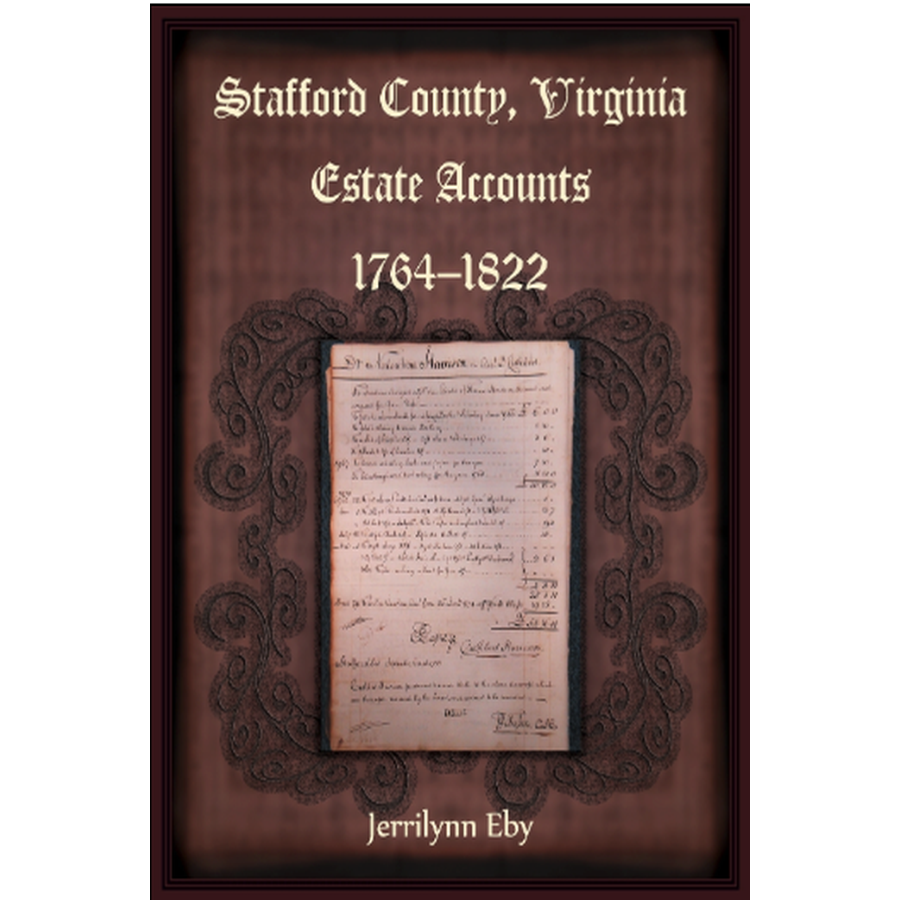Stafford County, Virginia Estate Accounts, 1764-1822
Couldn't load pickup availability
For personal estates with which the county court had some involvement, the decedent's administrator was required to produce to the court periodic accounts that were reviewed by two or three court-appointed commissioners. Each expenditure required a voucher or receipt to prove its validity. Turned over to the commissioners as loose papers, these documents would have been filed in the clerk's office and retained permanently as proof of the legal settlement of a decedent's estate. Unfortunately, these documents were amongst those lost during the Civil War.
Historians consider Stafford County to be a burned record county. The loss of records from the courthouse and clerk's office had little to do with fires, though several of those occurred at various times. Most of the losses were the result of fourteen months of occupation by Union troops during the Civil War. By their own accounts, these soldiers made at least two devastating raids on the courthouse and clerk's office and destroyed or stole about two-thirds of Stafford's official records. Lost forever — nearly every loose paper that had been generated and recorded between 1664 and 1862 as well as dozens of bound volumes of deeds, wills, trusts, surveys, inventories, and the like.
After the war, Stafford County officials made an effort to retrieve missing books as they learned of their whereabouts. Between 1866 and 2021, four volumes have been recovered.
This volume contains a wealth of information about local residents, businesses, and estates and hundreds of names are mentioned. The compiler decided that there was too much valuable information to merely publish an abstract of the document, so this book is, for the most part, a transcription of the original. A thorough index includes the names of residents, businesses, enslaved workers, free blacks, and even a few horses.
Jerrilynn Eby
2022, 8.5" x 11", paper, index, 430 pp.
ISBN: 9780788426285
101-E2628
